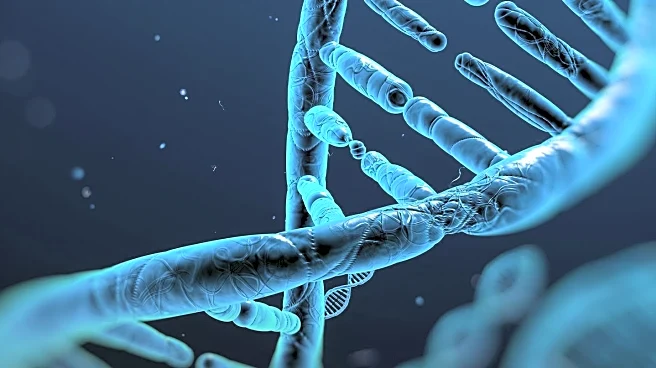What is the story about?
What's Happening?
Recent research published in Nature challenges the traditional view of autism as a single disorder, suggesting instead that it comprises multiple distinct conditions. The study, led by researchers from the University of Cambridge, analyzed data from four birth cohorts and genetic information from over 45,000 individuals. It found that autism diagnosed in early childhood is genetically and developmentally different from autism identified later in life. Early-diagnosed individuals often exhibit social and behavioral challenges from infancy, while those diagnosed later tend to develop cognitive and behavioral difficulties over time, often alongside conditions like ADHD and depression. The genetic profiles of these groups also differ, with early-diagnosed individuals showing rare genetic variants and later-diagnosed individuals having higher polygenic risk scores for traits like educational attainment.
Why It's Important?
This study has significant implications for the understanding and treatment of autism. By identifying distinct subtypes of autism, it could lead to more personalized and effective interventions. The findings highlight the need for a nuanced approach to autism diagnosis and support, recognizing the diverse developmental pathways and genetic backgrounds of individuals. This could improve outcomes for autistic individuals by tailoring support to their specific needs. Additionally, the study underscores the importance of considering social and cultural factors in autism diagnosis, as these can influence the age and manner in which autism is identified.
What's Next?
Future research will likely focus on further exploring the genetic and environmental factors that contribute to the different subtypes of autism. Understanding the interaction between genetics and social factors could help address the mental health challenges faced by later-diagnosed individuals. Researchers also emphasize the need for studies in more diverse populations to validate these findings and to develop more precise diagnostic tools that go beyond caregiver reports. This could lead to a more comprehensive understanding of autism and its various forms.
Beyond the Headlines
The study's findings challenge the notion of an 'autism epidemic' by suggesting that what is often perceived as a single condition is actually a spectrum of distinct disorders. This could shift public discourse and policy towards a more individualized understanding of autism, potentially influencing funding and research priorities. The recognition of autism as a collection of conditions rather than a single disorder may also impact how society views and supports autistic individuals, promoting greater acceptance and tailored support.















